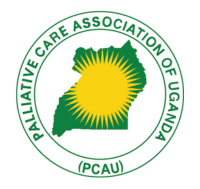This year 2023 marks 30 years since Dr. Anne Merriman founded Hospice Africa Uganda (HAU) the pioneer stand-alone palliative care facility in Uganda. In the last 30 years, Uganda has registered several milestones for palliative care as access to the service still stands at slightly over 11% for all those in need.
The recent action of integrating positions for palliative care staff into the public service structures, if well implemented will address the low access to palliative care. The government has included positions for palliative care providers in the newly approved structures at the Uganda Cancer Institute (UCI), Uganda Heart Institute (UHI), Mulago National Specialized Hospital, and most profoundly at Health Centre IV and Health Centre III. According to the information available on the website (https://publicservice.go.ug/) of the Ministry of Public Service about the approved structures for hospitals and health facilities, the palliative care positions provided for in the structures include those for consultants, medical officers, and nurses.
The decision by the government to include palliative care positions, especially at Health Centres IV and III is a very important step towards recognizing the tenets of Universal Health Coverage (UHC). This action follows an earlier one in 2004 when the government through a statutory instrument allowed nurses and clinical officers qualified in palliative care to prescribe oral liquid morphine to control pain among patients. palliative care trained Having palliative care providers at lower health facilities means that care can be rooted in the communities they serve. Unlike other medical specialties, palliative care addresses the pain and the needs of both the patients and their families or caregivers. The approach is holistic in nature. Palliative care prevents and relieves suffering through the early identification, correct assessment, and treatment of pain and other problems, whether physical, psychosocial, or spiritual. This is always most effective at the community level and in homes.
These actions by the government have always followed sustained appeals and advocacy by civil society actors such as the Palliative Care Association of Uganda (PCAU) and others. For many years, the Palliative Care Association has been offering scholarships for palliative care education and training at Diploma, Bachelor of Science, and Master’s levels. These courses are offered by the Institute of Hospice and Palliative Care in Africa (IHPCA) which is a private entity affiliated to Makerere University. In 2018, the palliative care association supported the establishment of the Advanced Diploma in Palliative Care Nursing (ADPCN) which is offered at Mulago School of Nursing and Midwifery (MSNMW).
While it is very commendable that the government has taken an important step towards recognizing qualified palliative care providers, it is worth noting that the country does not have the required numbers to recruit. For example, according to Uganda’s National Health Facility Master Facility List 2018, there are over 1500 Health Center III and over 200 Health Center IV health facilities in the country. These would all require an assistant nursing officer qualified in palliative care.
The important step taken by the government to recognize palliative care qualified health workers should be complemented with a deliberate investigation into palliative care training. The government also needs to establish a comprehensive national palliative care policy and strategy. Palliative care civil society actors in Uganda have also spelled out important structural and medical supplies changes in an important document that spells out an essential palliative care package for Universal Health Coverage. The actors hitherto made detailed recommendations during the Universal Peer Review Mechanism in a joint palliative care report for Uganda. On top of the recommendations, the government needs to deliberately improve the budgetary allocation for palliative care.
The need for palliative care in Uganda is increasing. Statistics show that at least 34% of annual deaths are attributed to the five leading non-communicable diseases (NCDs) namely cardiovascular diseases (10%), cancers (9%), diabetes (2%), chronic respiratory diseases (2%) other NCDs (11%) in Uganda. The prevalence rate of deaths of children less than 15 years attributable to NCDs is 2.0% (WHO 2018). Uganda’s older persons are estimated at 1.5 million constituting 3.7% of the total population of Uganda (UBOS 2021). Older persons are at risk of age-related health conditions such as arthritis, stroke, dementia, hypertension, diabetes, ulcers, respiratory conditions, and orthopedic problems. Also, the most common among older persons are cardiovascular disorders and cancer. The government must continue to take steps towards improving the availability and accessibility of palliative care. The matters of pain, sickness, death, dying, bereavement, and grief which are the focus of palliative care are universal. Palliative care is everyone’s business.
By Mark-Donald Mwesiga Executive Director - PCAU









Comments are closed.